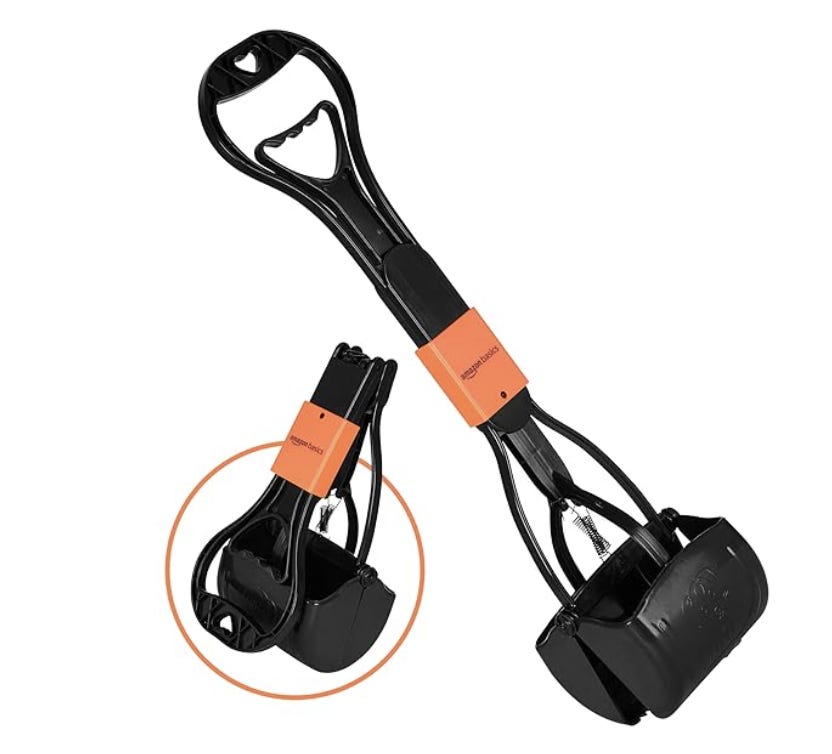In Which Attie Teaches Us About A Long Call
I have known since age 7 that I wanted a dog at home. But as with every kid who wants a dog at home, so also with me - my parents didn't want a dog, and so that was that.
This will be a lasting regret with me, but life happened even after I got my own home, and it kept on happening. And it kept on happening until one day what happened was that two of my daughter's best friends in our housing society ended up getting a dog at their place. Our daughter dialed up the power on her Puppy Eyes to max, and that, also, was that.
I had only one condition about a dog coming home. And if you say that this was an unfair condition to place where my daughter was concerned, I agree with you. For the condition was that I would get to name the dog, and nobody else would.
But you see, I had to name the dog because that was a promise that a seven year old had made to himself - that when that seven year old dog's finally came home, that dog's name would be Attie.
Attie is short for At Last.
So anyway, Attie is now almost four years old, and is loved by one and all in our part of the woods. She, for her part, also loves one and all, and reserves her highest love for gobbling up chicken, and playing with babies and kids (in that order).
Now, in order to learn about a long call, let's take Attie for a walk, and scoop up her poop.
Meet The Poop Scoop
As with the rest of the city I stay in (Pune), so also with the neighborhood I stay in. It has become unbelievably dirty. The PMC has not thought it necessary to make footpaths available, and parking is allowed on both sides of a narrow lane, and the less said about the cleanliness, the better.
But when we take Attie for a walk, we do make sure that we pick up after madam is done with her business. We do so using one of these:
The algorithm is drop-dead simple. Wait for madam to be done, cover her business with a paper napkin, and scoop up the whole thing. Walk back home, flush, and forget until next walk.
Except for those troublesome occasions (few and far in between, thank god), when madam decides to dump a double loader. This happens once a month or so, thankfully, but at about that frequency, it is fairly regular.
Then the algorithm is to curse her silently under one's breath, deploy a second napkin, and repeat the rest of the process. Those of you with an engineering or a public policy mindset might worry about the carrying capacity of the poop scoop, but rest easy, you guys. That poop scoop can easily handle the additional, er, load.
The key question at hand is not, however, the carrying capacity of the poop scoop. It is, instead, this one:
Should we always carry two paper napkins when we take Attie out on walks?
Let's Go Through This, er, Shit
Remember, Attie has the urge to go about her business twice on the same walk roughly once a month. And there's no saying in advance which day will be The Day. And of course, as with any other statistical process, so also with this one. That frequency averages out to be roughly one a month over a large sample - but that can also mean a month with three double loads, and then two months of, er, single-shotting.
So today evening, say, when the time has come, should yours truly step out for a walk with one paper napkin? Or two?
Now, if you have been paying attention, and have thought this through, you should be asking yourself just how flimsy this whole set-up is. Duh, you should be saying to yourself, just how difficult is to always step out with two paper napkins.
Hell, you should think to yourself now that you are nicely warmed up, take three with you every day. A 3 s.d.** event is, probabilistically speaking, not an impossibility after all.
And you'd be right, of course. If it costs nothing to have the option, why not have the option?
This is the concept of "optionality". Here is o3's explanation of the concept:
Think of optionality as buying yourself a “maybe.” You pay (or arrange) a small cost today so that Future-You can choose between doing the thing or walking away once you see how the world turns out. It’s the same logic as reserving a hotel room with free cancellation: if the trip looks good, you go; if plans change, you cancel and lose nothing more than that tiny bit of effort up front. The value lies in keeping doors open and downside limited while still letting upside—good weather, a suddenly profitable project, a surprise opportunity—flow to you. That built-in flexibility, bought cheaply in advance, is what people mean by optionality.
Beta, Science Kar Lo
The Indian middle class has evolved to a point where some combination of A,T,C and G in our DNA now expresses a gene whose sole job it is to say this sentence to our offspring ("Beta, science kar lo"). This gene kicks in when said offspring is about 13 years old, and goes into peak overdrive on 10th standard results day.
The parent may not know it, but they're simply teaching their kids about optionality. They're saying that Future-You can choose to do whatever Future-You wants by taking science today. That way, if you want to study something that lies at the intersection of, say, biology and art, you can. Or physics and literature. Or commerce and music. If these courses were to be offered in India (which in and of itself is quite unlikely, but that's a whole other story), they'd almost certainly have as a requirement you having studied science courses as a pre-requisite. So why cut off all of these wonderful choices by studying arts in the 11th and 12th?
Ergo that dreaded line: Beta, Science Kar Lo
Optionality.
But I Don't Like Science!
It is not difficult to explain the concept of optionality to anybody. You'll agree that Attie's poop story is a story that even a child can understand, and even said child will roll their eyes and tell us to walk about with two (or three) paper napkins. They get the concept of optionality.
Then why o why do those obstinate 16 year olds not get it? Why do they still insist on taking arts?
They're not disagreeing with the concept of optionality, you see. They completely get that it doesn't cost anything to keep two additional paper napkins with you.
They disagree (and sometimes, very, very strongly) with the idea that it doesn't cost anything to do science for "just" two years.
It is not optionality itself that is the problem. It is the price that you have to pay to get that optionality. Two additional paper napkins in your pocket is a low price to pay to have the option.
Two years of studying subjects that you just don't like?
That is not a low price, especially at ages 16, 17 and 18.
And That's How You Understand A Long Call
How much are you willing to pay today to have the choice to buy something in the future?
The cheaper the price to have the option to buy, and the better the potential payoff in the future, the more you should be willing to buy the option today.
How much does it cost to put two additional paper napkins in your pocket? What are the potential benefits? We should always have additional paper napkins in our pocket.
How much does it cost to study subjects you just don't like for two years? What are the potential benefits? At the margin, students need to think long and hard about the second question. Also, at the margin, parents need to think long and hard about the first question.
How much does it cost to buy the option to buy a share of Airtel next month at 50 rupees? If it costs one rupee, and if we're in a market that has been relatively ok, and if Airtel is currently trading at 100 rupees... we should buy the option.
Why? Because it costs you only 1 rupee to have the option to buy something at 50 next month. If prices stay at or around 100, but you can buy it at 50 by paying only 1 rupee for the privilege of being able to do so, life is good!
If, on the other hand, that option to buy Airtel at 50 one month later costs 60 rupees, and we're in a market that has been trending downwards, and Airtel is currently at 100... we probably shouldn't buy the option.
If you understood those last two paragraphs, you've understood the key idea behind a long call.
(Edit: Thanks to Mihir Mahajan for pointing out the errors with this example, they are fixed now)
TMKK?
Now go take a look at the technical explanation of a long call (or ask your friendly neighborhood LLM to explain it to you). Feel free to feed your LLM a PDF of this blogpost!
Ask your friendly neighborhood LLM to construct four or five different numerical examples for you to walk through. Ask your f.n. LLM to make these realistic (or even better, pull out actual examples for you to think through)
The more adventurous among you can then ask your f.n. LLM to walk you through a short call, a long put and a short put.
Ask your f.n. LLM to help you think through where else in your life optionality might matter, and how you might increase optionality in your life (nothing is off limits: careers, finances, book buying, planning a trip, whatever). Ask for famous examples, ask for contrived examples, ask for relevant examples.
Above all, learn that you can learn about anything, only by unlocking your ability to draw parallels between what you do, and what you need to learn.
Hell, it is possible to think up a post about finance while watching your dog poop in the evening.
True story!
** A 3 shit dog, or a 3 standard deviation event. Both work just fine. Not Attie's digestive system, though. A 3 sd walk clearly implies a not fine dog.



